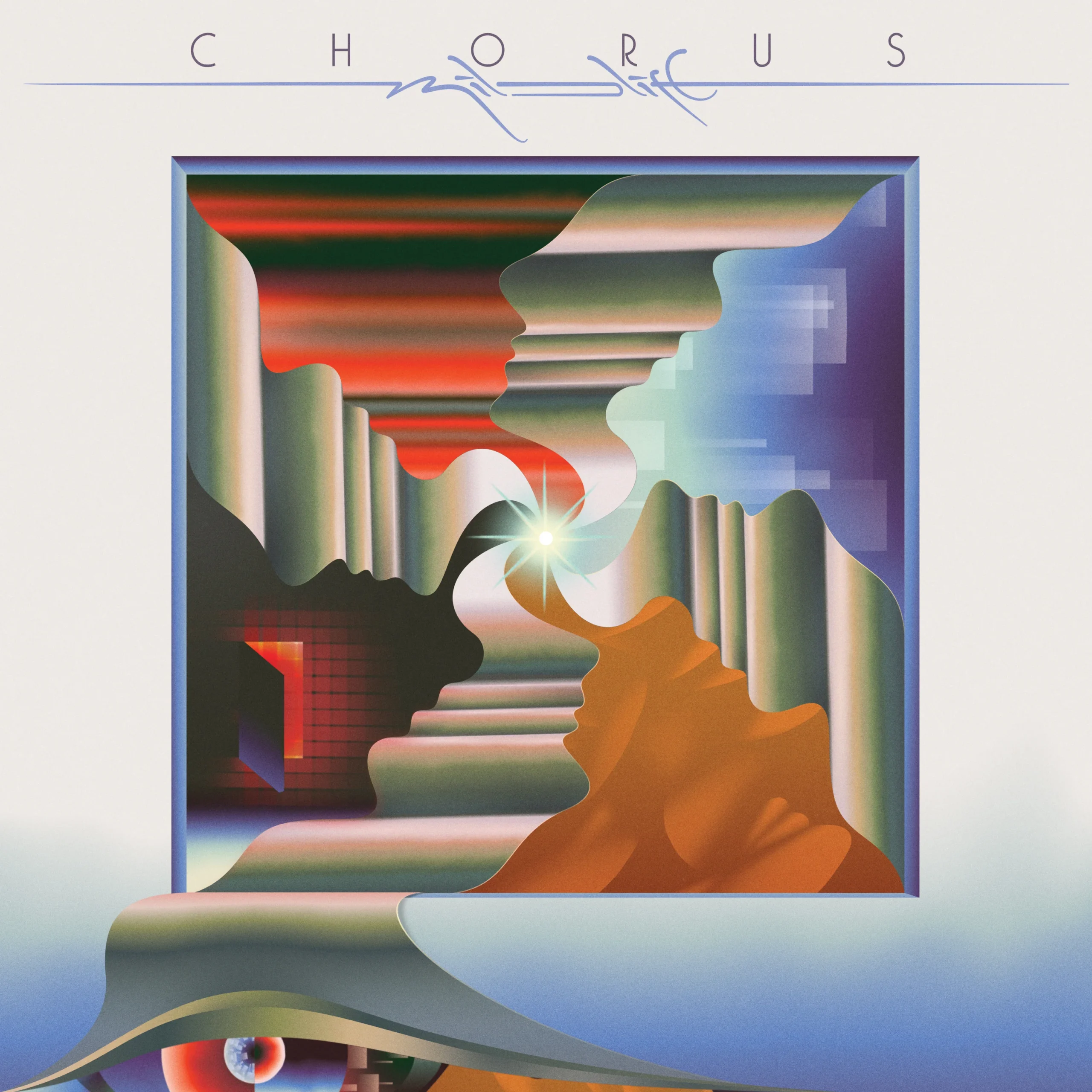“Musica, nature symphonic”. Australian prog-disco quartet Mildlife celebrate how dissimilar elements in music and life can join together in symbiosis on the third release Chorus. The album cover shows the four band members (vocalist Kevin McDowell, guitarist Adam Halliwell, bass player Tomas Shanahan and drummer Jim Rindfleish) all in a silhouette shape but each of their forms are different in colour and texture. Nonetheless, they are tied together while travelling into a spiralling realm. Although artistically abstract, it reflects the Melbourne group’s mission and invites listeners to join their musical alliance within.
Four years on from 2020’s Automatic, in which Mildlife blamed machines for humanity’s creative stagnation, the compositions on Chorus are anything but monotonous. Lyrically, it isn’t particularly fascinating, with the words not really add any solid weight to the concept about equilibriums. Therefore Chorus makes up for it with seven typically-Mildlife spellbinding epics – that all extent beyond the fourth minute mark – that massage your aural senses rather than your cerebral senses.
‘Return to Centaurus’ – named after a constellation – is an almost nine-and-a-half minute gift of surprises. Unsure about where it will go next but sure that you don’t want it to end. The first chapter hears a vocoder voice instruct rather contradictorily: “Don’t go searching for a brand new world” over the top of night-driving jazz funk in a way that imagines it as a lost track from Daft Punk‘s Random Access Memories, before the track goes in a faster-paced trippy new world; soothing whirl of phasing, free-flowing startled synthesizer and their penchant for including flute. Which is an instrument Mildlife also use on title track ‘Chorus’. Seemingly taking place in a nocturnal environment with crickets chirping, a drum machine loop that’s reminiscent of the beginning to Phil Collins‘ ‘In The Air Tonight’ is joined by a flute that is contorted to the point where it sounds like a wah-wah pedal. The track ending with the kind of high frequency sound of an ARP 2600 used in Kool and The Gang’s instrumental ‘Summer Madness’, a technique that they also use on the song ‘Musica’.
‘Future Life’ is intriguing. It gradually seduces the listener in with Kevin McDowell possessing an Erlend Øye style calmness and Tomas Shanahan guiding us along with his slick grooves. Yet there’s something about the atmosphere that feels like French Pop and the allure is increased with lines that point to an unknown fate: “Drawing me in close. Overnight, a new surprise. Another call, picking up the phone. Wandering into the night Dragging me along, waiting to discover.” The squelchy electronics seem unnecessary and break up the mood. So when Midlife resort to this technique, it’s almost as if they have run out of ideas.
Smack bang in the middle is the album’s musical apex ‘Musica’, an engaging ode to 1970s Italian disco. It incorporates vintage synthesizer artistry, including at around the four minute mark where it recalls Donna Summer‘s ‘I Feel Love‘in its undulating sequencer (furthermore the words “Sounds from another time” is perhaps a nod to the concept of Summer’s decade-hopping I Remember Yesterday record). The song also has Italian origins. Guitarist Adam Halliwell had an Italian grandmother and this is his way to embrace his previously-ignored ancestry. Musica is the Italian word for music but the track also features the phrase “Mi da la carica” which means “Give me energy.” Halliwell also used the unusual method of writing in Italian and then translating it back to English to give a skewed form of linguistics, for example: “Sounds of the city breathe”. If he had used this technique all throughout the track it would have been more effective.
Created over a long period of time, ‘Musica’ is the consolidated product of jamming both in the studio and on stage during encores in the course of several years – it is summary of Mildlife’s symbiosis mentality, even if perhaps the rest of the album is not quite on point.




